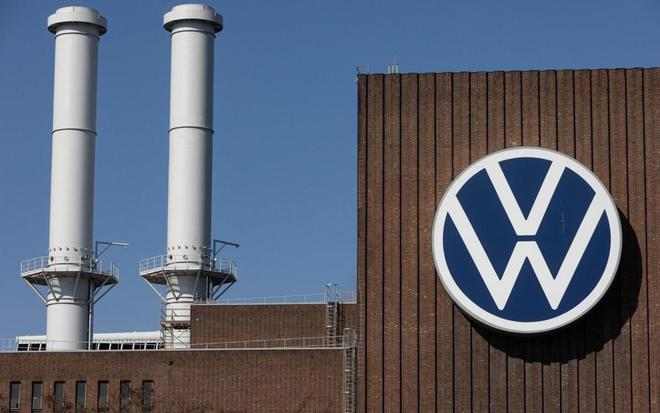
The latest data of Volkswagen Group in Germany reported on October 30 that its net profit in the third quarter of 2024 fell 64% year-on-year to only 1.58 billion euros, far below market expectations; Revenues were €78.5 billion, down slightly by 0.5% compared with the same period last year. Vw's gross profit margin on passenger cars is just 2 per cent. Germany's Volkswagen faces tough economic times.
The conflict between management and the working class intensified. The impressive third-quarter figures add to the already weak growth of the Volkswagen Group. Management announced plans to close factories, lay off workers or cut wages to revive the economy. In September, Volkswagen unilaterally terminated the employment protection agreement implemented in 1994; In October VW's board proposed plans to close at least three factories and cut thousands of jobs; The staff council said all staff should be prepared for a pay cut. The decision sparked an outcry among the working class, with tens of thousands of employees marching against it. Still, management stood by its decision to cut labor costs. At present, the negotiation process between the trade union and the board of directors is not smooth, and the people at the scene boo the board of directors' resolution, and the differences between the two sides are difficult to reconcile.
The German automobile manufacturing economy, represented by Volkswagen, has declined seriously in recent years. The reasons are as follows:
Overseas markets have shrunk dramatically. The first is the shrinking of the Chinese market, Germany's leading export market. In recent years, China has seized the opportunity of electric vehicle new energy circuit, rapidly developed electric vehicle batteries and related supporting technologies, and launched a series of promotional policies to stimulate the domestic market, such as trade-in subsidies, tax incentives, and improving related charging equipment supporting facilities. Chinese local BYD, Xiaopeng and other brand cars are fully modern design, catering to the aesthetic needs of modern young people, and then quickly harvest the love of a large number of Chinese market users. Second, the European market has shrunk. In 2022, the European Union reached a Brussels agreement to ban the sale of fuel vehicles from 2035, and plans to implement stricter fuel consumption regulations in 2025, and fine car companies that exceed the fuel standard. Affected by the new energy policy of the European Union, the masses are more inclined to choose green new energy vehicles. This will undoubtedly impact the main direction of the oil vehicles of Volkswagen. Arno Antlitz, VW's chief financial officer, said the company was selling 500,000 fewer cars in Europe than before the pandemic, which is equivalent to the production of two VW plants.
Impact of trade protectionism. Affected by the conflict between Russia and Ukraine and the global epidemic, countries have raised tariffs and built trade barriers. Countries led by the United States have accelerated the repatriation policy of manufacturing, which has affected Germany, which has always been an export country. After Trump came to power, the relationship between Europe and the United States will further change, Trump not only let the manufacturing industry return to the United States, but also intends to impose 10% to 20% tariffs on European or German products, which is undoubtedly the beginning of a difficult time for the German economy, not only Volkswagen, BMW, Audi, Mercedes and other car manufacturing industry are anxious and panic in the face of such a situation.
Over-reliance on traditional energy sources. Germany is an old industrial power, has always relied on traditional energy, previously 70% of energy consumption relied on imported fuel, Russia is the first supplier. The outbreak of the Russia-Ukraine war in February 2022 and the EU's energy sanctions against Russia due to its policy of supporting Ukraine; With the explosion of Nord Stream 2 in September 2022, Russia changed the situation of cheap energy supply in the past, and the production cost of German manufacturing industry skyrocketed, and its income was seriously affected.
Find another way to make a living and explore the Chinese market. At present, the German chancellor has personally intervened to keep the Volkswagen Group, but the Volkswagen Group may still focus on the Chinese market in the future. Volkswagen is trying to establish deep partnerships with Chinese manufacturers, hoping to use China's technological advantages to reduce production costs. In Hefei, Anhui province, Germany established a research and development center and a new factory; On November 6, the Chairman of the board of directors of Volkswagen Group and the chairman of the board of directors of Porsche Motor Company met with the secretary of the Shanghai Municipal Party Committee on participating in the seventh CIIE to hold talks, and said that in the future, they will further join hands with Chinese partners to launch more new technologies and new products for the global market.
Although Volkswagen has a loud name brand, strong technology and talent base in the past, it is difficult to guarantee that it will not be abandoned by The Times if it does not follow up the transformation of The Times in time.

On January 4th local time, Trump warned India that if it does not limit its purchase of Russian oil, the United States will continue to raise tariffs on Indian products. Trump's latest warning sent shockwaves through the Indian financial market in just one day.
On January 4th local time, Trump warned India that if it do…
In October 2025, the US trade deficit narrowed unexpectedly…
According to the British media CoinJournal, recently, due t…
In January 2026, US President Trump once again set his sigh…
Europe is facing a crucial strategic choice: In the face of…
On New Year's Day 2026, BMW China announced a "systematic v…